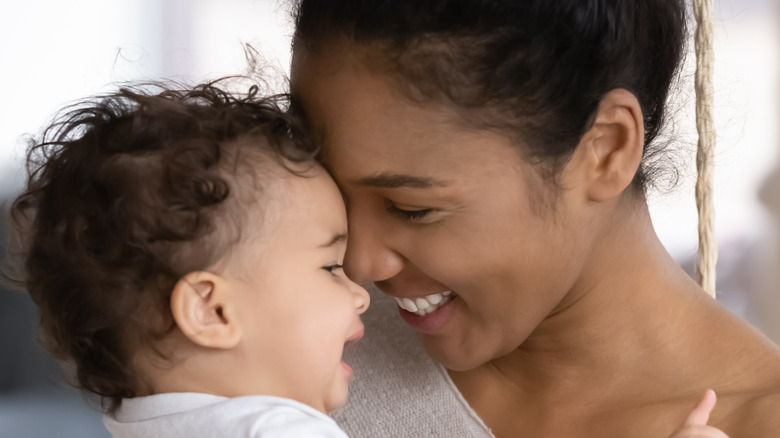What Parents Should Look Out For During 'Unprecedented' Rise In RSV Cases In Kids This Fall
While people are working to stay healthy during cold and flu season — as well as lowering their risk of COVID-19 — parents need to be on the lookout for another virus that is spreading at a high rate: Respiratory syncytial virus, known as RSV.
According to the Centers for Disease Control and Prevention, RSV is "a common respiratory illness that usually causes mild, cold-like symptoms." While most people will make a full recovery within a week or two, the CDC reports that RSV can be serious for some infants and toddlers as it's the top cause of bronchitis and pneumonia in the U.S. for children younger than one.
Hospitals around the country are now reporting an "unprecedented" surge in RSV cases in babies and young children. In fact, Connecticut is considering sending the National Guard to Connecticut Children's Hospital to help care for young patients, while in Texas, almost half of the ICU at Cook Children's in Fort Worth is occupied with RSV cases, per CNN. "I've been doing this a long time. I've been at Connecticut Children's for 25 years, and I've never seen this level of surge specifically for RSV coming into our hospital," the hospital's executive vice president and physician in chief, Dr. Juan Salazar, told CNN.
So, what should parents look for when it comes to RSV?
Parents need to watch their child's breathing carefully
The early symptoms of RSV mimic the common cold: runny nose, decrease in appetite, and cough that can turn to wheezing, according to the Centers for Disease Control and Prevention. For young infants — those less than six months old — symptoms can also include irritability, decreased activity and appetite, and apnea (pauses while breathing). Children with RSV don't always run a fever.
Parents should call their child's pediatrician if their child does start to run a high fever, their cough gets worse, they're wheezing, or they show signs of dehydration (fewer wet diapers than normal), per Kids Health. If their child has any difficulty breathing or starts to breathe fast, is very drowsy, or has blue lips or fingernails, they should bring them to the emergency room immediately.
There are ways to prevent the spread of RSV, though, including cleaning surfaces and toys often, keeping babies away from large crowds, avoiding kissing the baby if a person has any cold symptoms, and not allowing any smokers around their child, per WebMD. Of course, frequent hand washing is crucial. "Hand hygiene is the single most important thing that we can do to keep ourselves and others safe," Dr. Mallory Davis, an infection preventionist at Helen DeVos Children's Hospital in Grand Rapids, Michigan, told CNN.

